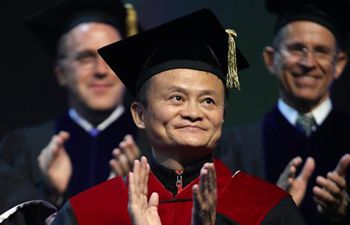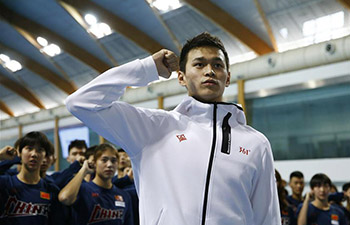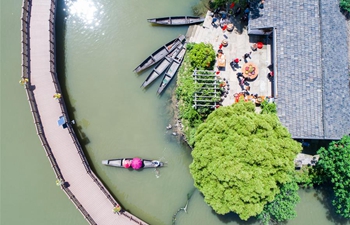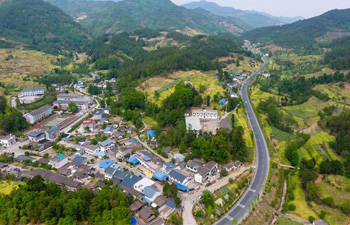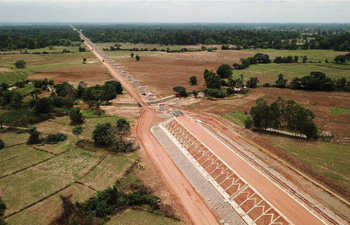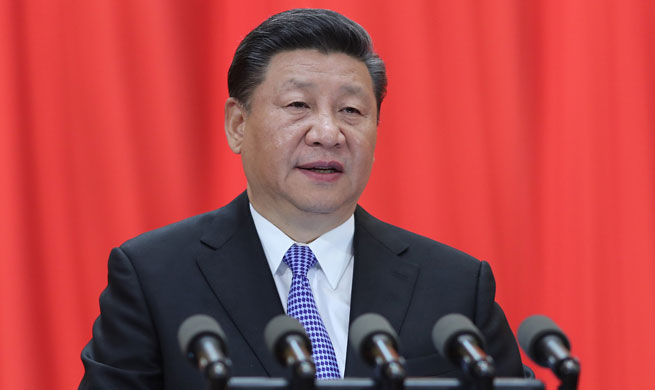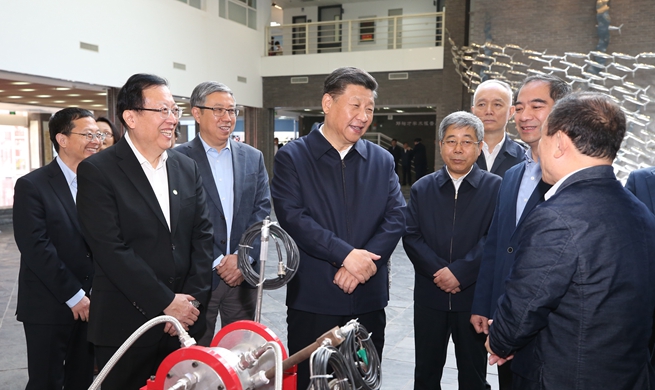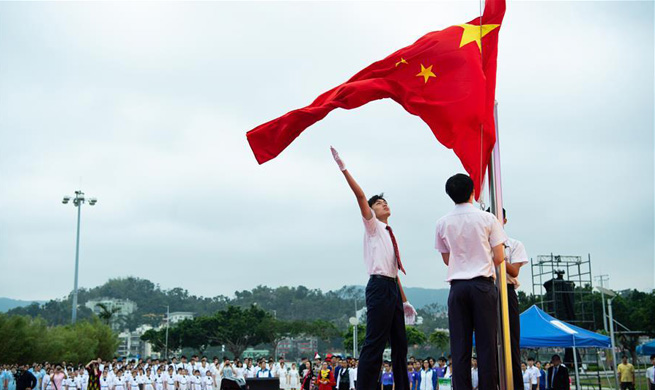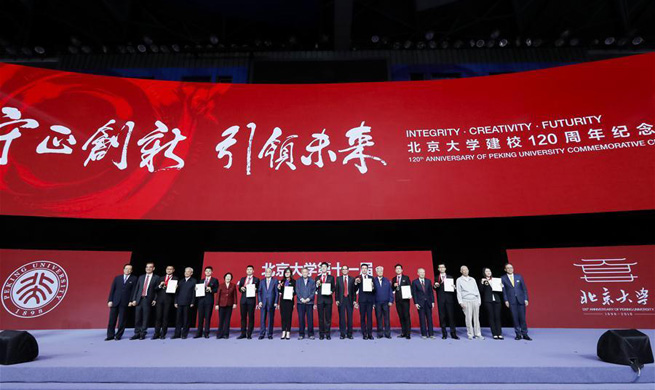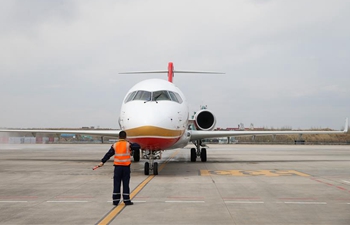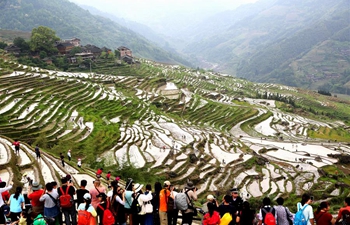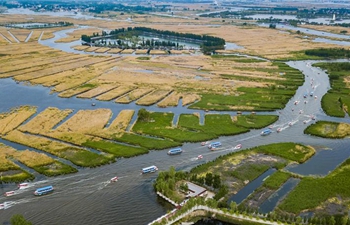ISTANBUL, May 4 (Xinhua) -- Turkey's upcoming presidential and parliamentary elections are historically important as the choice to be made by the nation will determine whether a powerful presidential system will be put into effect or the parliamentary system will be re-embraced.
Many fear Turkey would end up in a one-man rule in case the presidential system is adopted.
The elections will decide "whether democracy or autocracy prevails," Sami Selcuk, who teaches at the Faculty of Law in Bilkent University, told Xinhua.
A victory by an alliance of parties led by the ruling Justice and Development Party (AKP) in the polls will mean the adoption of an executive presidency. The opposition parties have vowed, however, to switch back to the parliamentary system if an opposition candidate is elected president.
Turkey will have snap presidential and parliamentary elections on June 24.
In a controversial referendum in April 2017, Turks voted in favor of a switch from the parliamentary system to an executive presidency. The new system will fully go into effect following the upcoming elections.
The presidential system introduced by the ruling party has been much criticized for bestowing sweeping powers to the president while restraining those of the parliament and placing the judiciary under the executive's sway.
"Even people with the best of intentions would end up as dictators in such a system," said Selcuk, who is also the honorary president of Turkey's Court of Cassation.
The Islamist AKP defends the presidential system on the grounds that it is not only needed for the country to be able to tackle some major problems, but also to achieve better economic progress.
The executive presidency, which bolsters quick decision-making, is needed to increase efficiency in government, argued President Recep Tayyip Erdogan, who will run for president again as the AKP leader.
Many feel that Turkey's regime can no longer be called democratic in case an executive presidency goes into effect.
As opposed to past elections, it is Turkey's political regime that will in a sense change this time, Ertugrul Gunay, who formerly served as an AKP cabinet minister, told Xinhua.
"Because these elections are critically important, a tense race has been going on between advocates of pluralist democracy and one-man rule," said Gunay, who cut off ties with his party in 2013.
Remarks made by the ruling party's deputies and sympathizers in the past have raised concerns that the AKP may attempt to settle accounts with the secular Turkish Republic and restructure the state along Islamist lines should Erdogan win the presidential race.
Ahead of the critically important elections, Turkey's political parties have come together in two rival alliances.
The AKP-led alliance, which includes two nationalist parties -- the Nationalist Movement Party (MHP) and the Grand Unity Party (BBP) -- is cooperating in both the presidential and parliamentary elections.
Other than his own party, Erdogan is being backed by the MHP and the BBP in the presidential race.
Having failed to agree on a joint presidential candidate, the opposition parties nominated their own candidates for the presidential race.
No candidate is expected to get more than half of the votes in the first round of the presidential election expected to be a neck-and-neck race.
In the runoff, the opposition parties are expected to support the candidate who would get the most votes among the contenders of the opposition.
Some of the opposition candidates who lack the support of 20 deputies for candidacy need to collect 100,000 signatures by the end of May 9 to be able to run for the presidency.
The elections will be held under a state of emergency put in place in the wake of a failed coup in July 2016.
The opposition's alliance is composed of the Republican People's Party (CHP), the Good Party, the Felicity Party and the Democrat Party.
As the main opposition in Turkey, the CHP on Friday announced Muharrem Ince, a veteran lawmaker from the party, as its presidential candidate.
The Good Party's candidate is its leader Meral Aksener, while Temel Karamollaoglu, head of the Felicity Party, will need to collect 100,000 signatures for his candidacy.
The opposition is reportedly concerned about possible fraud in the polls, as there were widespread claims of cheating in the referendum last year which passed by a very slim majority, raising a big controversy about the result.




